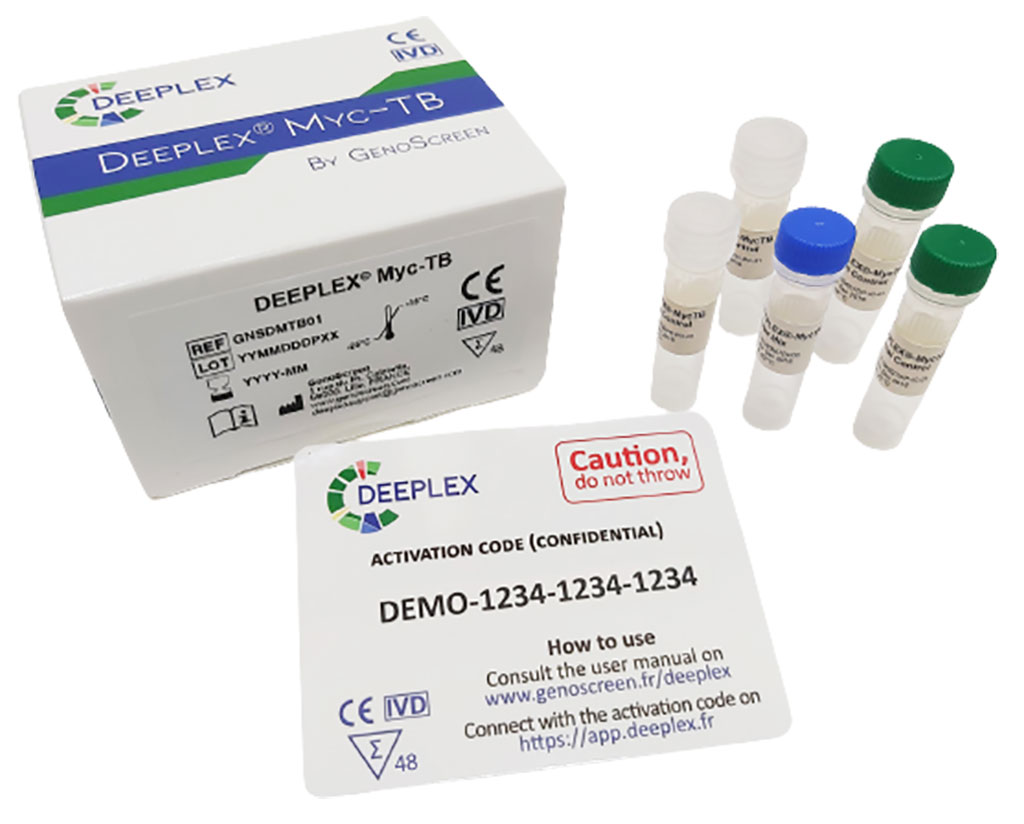Transformative NGS Innovation Expands Access to Genomic Testing for Tuberculosis Patients
Posted on 28 Mar 2023
The World Health Organization (WHO) has identified tuberculosis (TB) as the leading global bacterial infectious killer, causing more than 1.5 million deaths each year. Despite the possibility of a cure with appropriate treatment, multidrug-resistant TB (MDR TB) has become a significant global public health emergency. Between 2020 and 2021, an estimated 450,000 people contracted TB with rifampicin resistance (RR) or MDR, with only 30% of cases identified and enrolled in MDR-TB treatment. Currently, standard culture-based testing methods can take up to two months to produce results, and conventional molecular assays are limited in detecting drug resistance. Now, the combined use of a targeted next-generation sequencing (NGS) based test and novel NGS platforms will allow much more rapid determination of extensive drug resistance profiles and TB strain types.
Illumina Inc. (San Diego, CA, USA) and GenoScreen (Lille, France) have released a new package that combines Illumina products with the GenoScreen Deeplex Myc-TB assay, a targeted NGS based test designed to rapidly and extensively detect anti-TB drug resistance. Since 2019, GenoScreen has been developing and producing the Deeplex Myc-TB assay, which can identify TB mycobacteria as well as over 100 non-TB mycobacterial species and predict resistance to 15 antibiotics, all within 24 to 48 hours, directly from primary respiratory samples. The Deeplex web application automates analysis of the sequencing data, enabling users to easily interpret the results and make informed decisions regarding the next steps.

The WHO's goal to end the global TB epidemic by 2035 will be furthered by this development, which represents the latest innovation in NGS. The latest partnership is part of a collaboration between Illumina and Genoscreen, first announced in 2022, that aims to accelerate the progress towards eradicating TB worldwide. Since 36% of all TB-related deaths occur in Africa, failure to invest in the TB response will have a significant impact on African nations. This partnership is enhancing the ability of countries, particularly those in Africa most affected by tuberculosis, to more effectively detect and combat MDR-TB.
"Through our partnership, we will enable lower-income countries to confront the pervasive threat of TB and work toward eliminating it," said Phil Febbo, Chief Medical Officer of Illumina. "The COVID-19 pandemic response led to expanded NGS capacity around the world, so now institutions have the platforms needed to support testing for TB drug resistance and improve survival for patients with TB, the leading infectious disease killer prior to COVID."
"As a world specialist in TB genomic solutions, we envision this partnership with Illumina as an accelerator for the global deployment of our Deeplex Myc-TB assay, especially for countries with the highest needs," said André Tordeux, CEO of GenoScreen.
Related Links:
Illumina Inc.
GenoScreen














